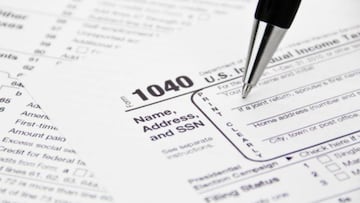Tax-free havens: Discover the eight US states where residents pay zero income tax
There are a handful of states which have no income tax for residents to pay, but that doesn’t mean there are no taxes at all.


In the US, each state has the power to determine how it will generate revenue through taxation. Some states opt to forgo the collection of income or sales tax. There are a total of eight states that do not tax income at the state level:
- Alaska
- Florida
- Nevada
- South Dakota
- Tennessee
- Texas
- Washington
- Wyoming
When states pass a budget each year, they look at the income they have generated and the funds that will be allocated to them by the federal government. While residents in these eight states do not pay income taxes to the state, they do still have to pay the federal government.
According to the US Census Bureau, the percent of revenue coming from the federal government in 2019 was three percent larger on average in states with no income tax. For states with no income tax, the average was 29 percent while for those with income tax the average stood at 26 percent.
Why do these states have no income tax?
As income tax is organized at the state level, it is as simple as states deciding that they do not want to impose it.
What this means is the state hikes taxes on products and other things people can buy to make up the shortfall. This can make these items more expensive and in some cases have unseen consequences. For example, Washington state has a tax of 49.4 cents per gallon on gasoline, one of the highest rates in the nation.
No state has a lower income tax than Arizona (among those states that have one). pic.twitter.com/asmvIyof9t
— Chris DeRose | Hotels, Housing, History (@chrisderose) March 26, 2025
Having no income tax comes with its problems. In 2015, Alaska saw one of its largest budget deficits in years. In 1980 the state had eliminated state income tax, as it was able to generate enough revenue through the extraction and commercialization of oil.
However, as many countries that depend on natural resources can attest, problems started when the price of oil began to fall. At the time of the crisis, the state saw a $4 billion budget deficit with the Commissionaire of the Alaska Department of Revenue saying that “for every $5 drop in oil prices, the state loses $120 million.”
Related stories
On the other side, the recent surge in oil price as a result of the war in Ukraine means Alaska can get a lot more money from the taxing of one commodity.
While efforts have been made to stabilize the state’s budget and revenue, in 2019, 35 percent of the state’s revenue came from the federal government; almost 10 percentage points higher than the national average.


Complete your personal details to comment